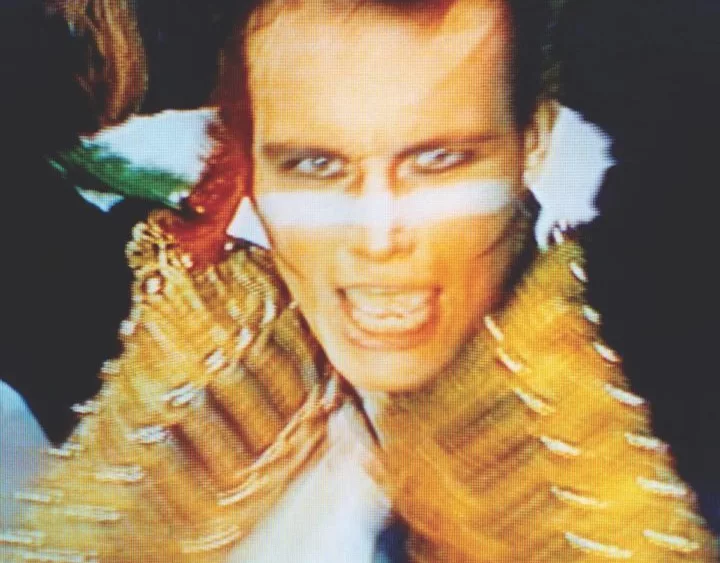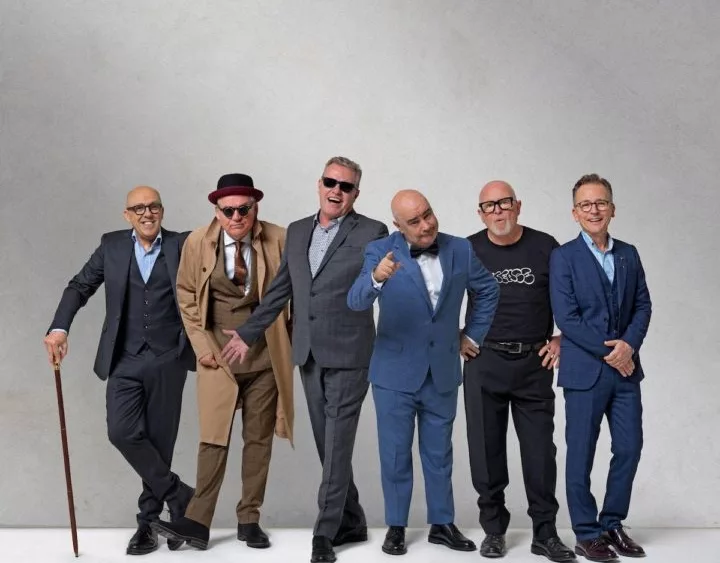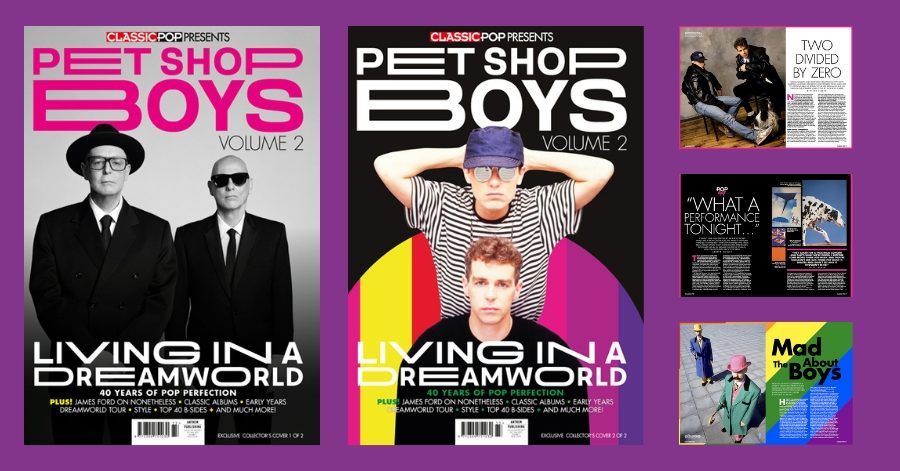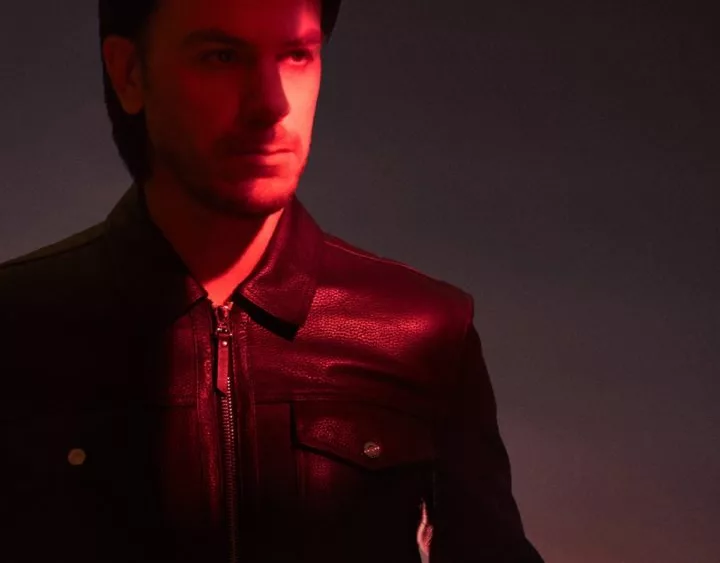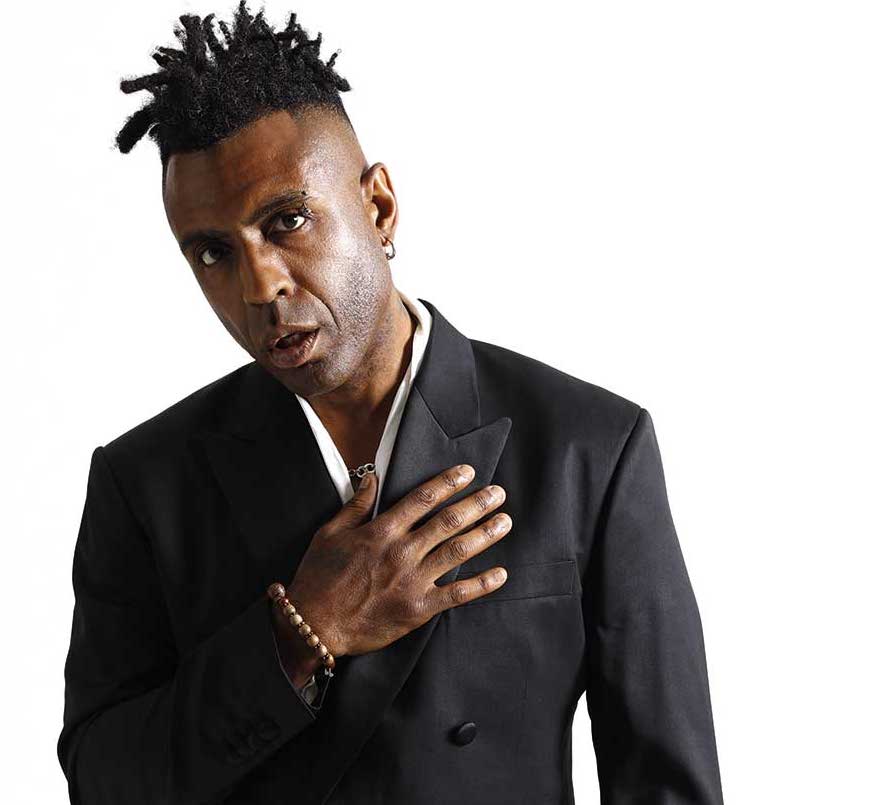 Omar has been at the forefront of British soul since the early-90s after his hit single There’s Nothing Like This. David Burke met the soul survivor in 2017…
Omar has been at the forefront of British soul since the early-90s after his hit single There’s Nothing Like This. David Burke met the soul survivor in 2017…
He was a pioneer of the British soul movement of the 1990s, alongside Brand New Heavies, Young Disciples and Jamiroquai, but Omar claims the genre’s black artists remain marginalised nearly three decades on.
“Soul music still hasn’t taken hold here. I still find it more underground,” he says.
It’s a disturbing assertion from someone whose consistently evolving music has been lauded across the Atlantic by luminaries such as Stevie Wonder, Angie Stone and Erykah Badu, each of whom he has recorded with, and one that suggests that the industry here in the UK isn’t quite as multicultural as it likes to think it is.
“Now grime is the in thing, which is obviously good for black people in terms of getting some fame. But I don’t see any awards going to the black artists. I see them going to the Sam Smiths and the Adeles, when I think there’s quite a big selection of people you could go for.
“The whole grime thing is cool, but that’s not the only part of black music that we have to offer. I think people like the darkness, they like the bad boy aspect with the hoods and things. There’s more to black music than that, but they’re not giving that other part of the black music scene its just desserts.
“That grime thing has nothing to do with soul music. It’s a completely different section of society that makes that music or listens to it. I’m sure there are people that listen to both, but if you’re talking about the mainstream, they pay more attention to grime than anything else.
“I like grime. It’s the UK version of rap, innit? That’s how the youths are chatting. I’m not saying it’s a bad thing, but I think soul music needs to get the same amount of attention.”
Rewind to 1991, when Omar first appeared on the chart radar with his irresistible single, There’s Nothing Like This, and neo-soul was the next big thing. Not that he was conscious of being part of any scene at the time.
“I was just making music because that’s what I do. I’m an artist, so that’s how I choose to express myself. I was just conscious of setting an identity for myself, quite selfishly. From when I was a kid I wanted to make a sound where, as soon as you hear the music, you know that it’s me.”
THE CHANGING MAN
With early albums like There’s Nothing Like This and Music, Omar achieved his objective, and indeed he continues to create in a singular territory, especially on his latest release, Love In Beats.
“Every time I make an album, I have to evolve, I have to try out different things. There’s a journey I’ve taken from when I started. So this is the next stage of the evolution.”
Love In Beats features his younger brother, Grammy Award-winning producer Scratch Professor, Leon Ware, Ty and Blue Note alumnus Robert Glasper, who can be heard on Vicky’s Tune.
“I’ve met Robert loads of times. We’ve been a fan of each other’s. We always said we’d do something. I asked him to play on Vicky’s Tune. It took a year to get it from him. But that man is so busy – I’ve never seen somebody tour so much.”
The collection represents the most complete collaboration with Scratch Professor, who brings a stronger hip-hop element to Omar’s sound.
“He’s big into his hip-hop. He was in the DMC Mixmasters Championships when he was about 12 years old. He’s been spending a lot of time in my studio at the back of my garden. We just decided it was time.
“That’s probably why it was finished quicker than my last few projects. The one before was seven years, the one before that was five. To do this in three years was pretty good for me.”
A FAMILY AFFAIR
It’s no surprise that Omar, Scratch Professor and their sister, singer Samia Lye-Fook, pursued similar career trajectories – it’s all in the DNA. Their father, Byron, was a studio drummer who played on sides by Bob Marley and Horace Andy. He exerted a significant influence on Omar early on.
“He influenced me in terms of production – he totally ingrained in me the thing about syncopation. That’s very prevalent in my music. He has a way of explaining things that isn’t very technical. It’s just all about grooves and grunting in certain places, but I totally got it. And it’s the same technique I use today.
“He had a studio in his house. I didn’t live with my dad until I was 18, but I used to go and stay at his place when he had rehearsals with his band. In fact, when I did move into the house, I took the recording room and I kept the drums in there so I could practice.”
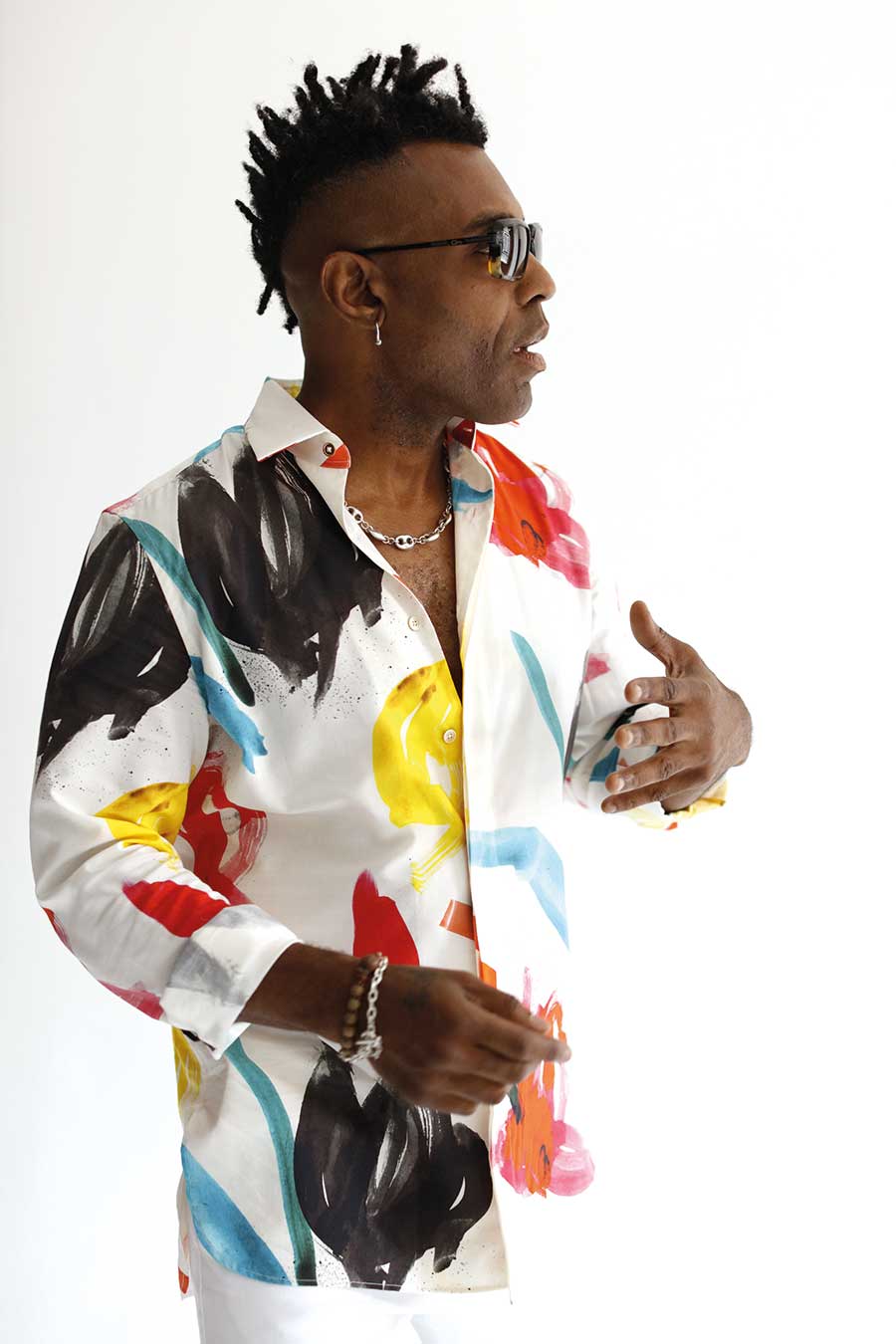
A child prodigy, the teenage Omar was principal percussionist in the Kent Youth Orchestra, though even then there was a sense that he was greater than the sum of its parts, that it was too much of a collective to contain the immense breadth of his individual ambition.
“We used to play the Royal Festival Hall every year. In the last couple of years I was like, ‘I want to do my own show here one time’ – I must have been 15 or 16. You play percussion, you’re at the back of the orchestra. I didn’t want to be at the back, I wanted to be at the front!
- Read more: Making Soul II Soul – Club Classics Vol. One
“And a few years later, I played the Royal Festival Hall a couple of times. It was about realising a dream, basically. I was playing percussion in the orchestra at the same time as my first album came out, so it was a smooth transition from one to the other.
“I remember being in Brazil with the orchestra and we did a show on TV. I was playing timpani. I like to make my presence known. And the next night we did another show somewhere, and somebody came backstage with a Milton Nascimento album.
“He said, ‘I brought this for you because I saw you on TV, and I thought you were the best thing that I could see’.”
MOMENTS OF WONDER
That admirer’s discernment was mirrored years later by Stevie Wonder, an instant fan on hearing There’s Nothing Like This. Indeed Wonder told a French TV interviewer he wanted to be Omar when he grew up, and promised to write the Canterbury native his first No.1.
While that promise hasn’t yet been fulfilled, the two did record Feeling You, on Omar’s 2006 album, Sing (If You Want It).
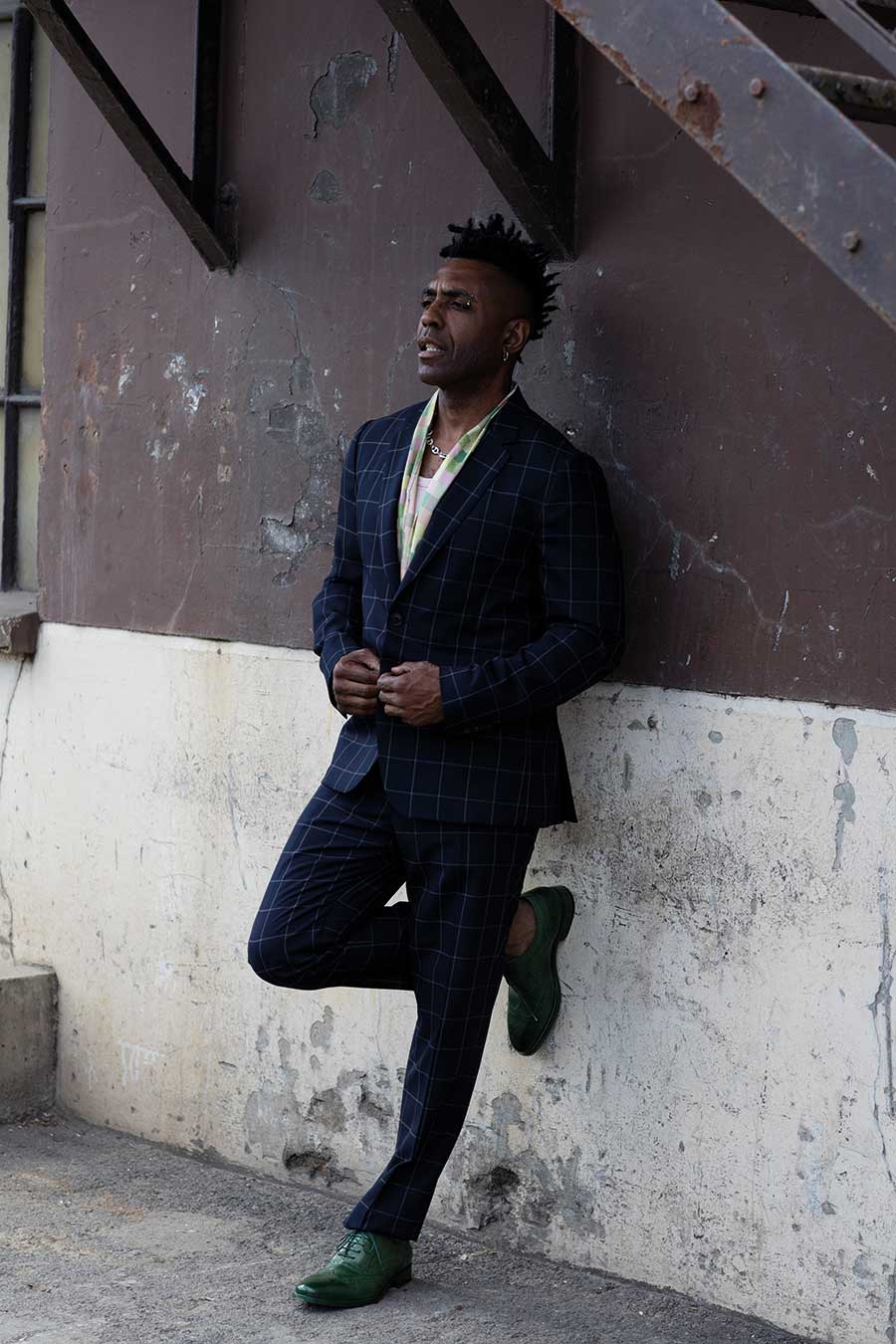
“In ’92, Stevie said he wanted to work with me. I got to go to Wonderland, his studio in LA, ’93, ’94, but we didn’t get anything done because he was falling asleep. One day I got a phone call out of the blue – ‘You alright, mate?
“It’s your boy’. I went, ‘Who’s that?’ ‘It’s Stevie!’ ‘Stevie who?’ ‘Stevie Wonder’. I went, ‘Nah! Sing something for me’. So he sang something for me.
- Read more: Sade – album by album
“He came over for two weeks and I was like his ambassador. We went to restaurants, clubs, hotels then finally went into the studio. He was like, ‘Nah, I want to come back again and do something else’. I said, ‘Stevie, I got another tune’, and that was Feeling You.
“You have to be very patient with Stevie. He said he was going to come to the studio at about eleven o’clock. By the time he was ready it was about five in the morning. You let him get on with things. He first got on the keys and started playing Giant Steps.
Then he went into the drum room and started playing the drums. Then he’d come up with a melody. He was teaching me different bits as he was working it out himself. It couldn’t have been more than four or five hours, but it was one of those moments that you really treasure.”
Another moment Omar treasures is the MBE he was awarded for services to music in the Queen’s 2012 Birthday Honours.
“I don’t normally get recognition from the mainstream. I certainly don’t get awards, but then I don’t make music for awards. I thought the MBE was an honour. And it was an honour for my family, too.
“The Queen was supposed to present it to me, but she was ill that day, so it was Prince Charles. I’d met him a few times. He said to me, ‘Are you still making music?’ I went, ‘Yeah. I’ve got a new album coming out’. He said, ‘Do drop off a copy at the palace’.
“So I sent him a copy and got a letter back from his secretary thanking me. Somebody said they could imagine him in his garden playing it while he’s pruning the hedges or talking to the plants.”
- Want more from Classic Pop magazine? Get a free digital issue when you sign up to our newsletter!
The post Omar interview: fighting his corner appeared first on Classic Pop Magazine.


